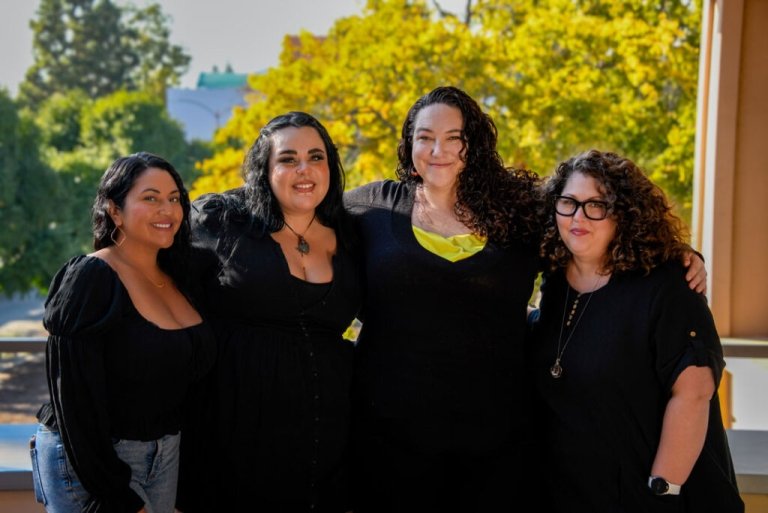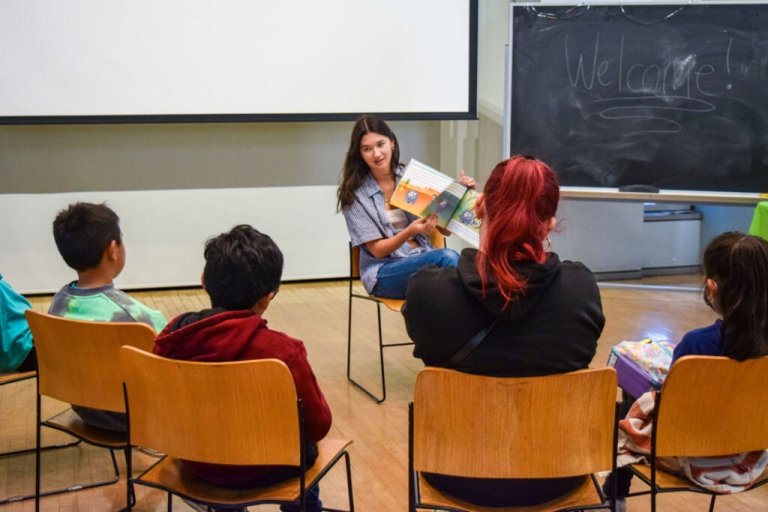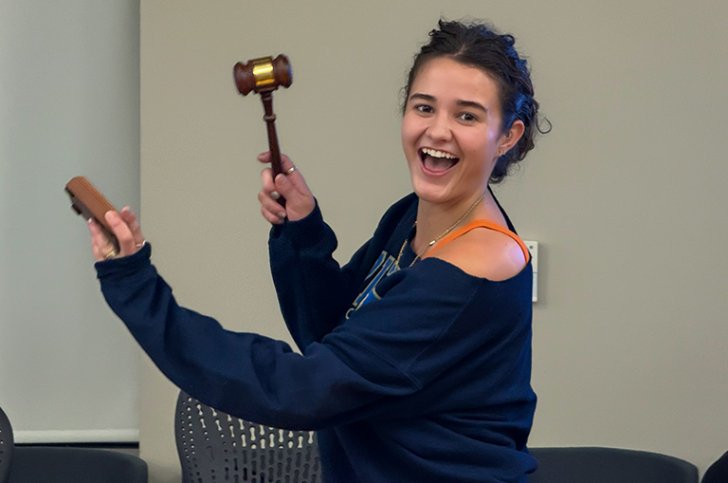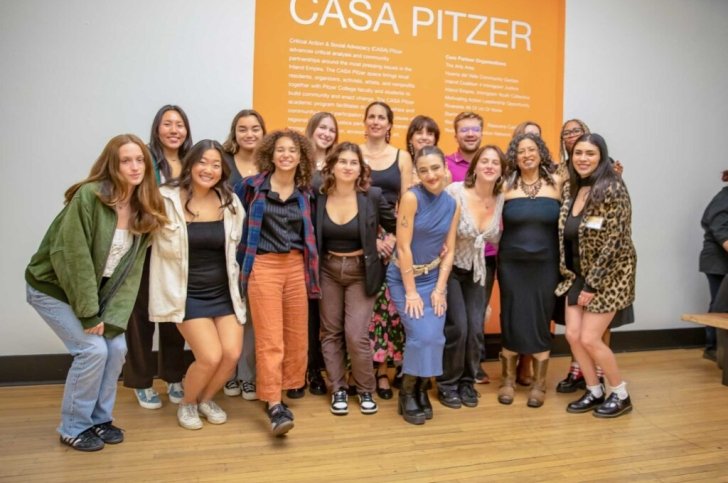Pitzer Marks 25 Years of Social Responsibility in Action
Pitzer College's Community Engagement Center celebrates 25 years of putting social responsibility in action — and its director talks about how the CEC plans to carry on its work over the next 25 years and beyond.

For Pitzer students, social responsibility isn’t just an idea found inside a book—it lives in community gardens, warehouses, classrooms, on street corners, and beyond. Pitzer’s Community Engagement Center (CEC) has helped make this work possible since its establishment in 1999.
“We’re supporting the innovation, ideas, passions, and justice issues arising in our community partners by connecting them with faculty and students,” said CEC Director Tricia Morgan ’08.
Social Responsibility Praxis
The CEC is the web that interweaves professors, students, and local organizations to create community-based research and experiential education. A prime example is Social Responsibility Praxis (SRX) courses, which include a 40+ hour community engagement component. The CEC facilitates the ethics trainings and partnerships for these courses.
“Every single student has to take an SRX course,” said Morgan. “They can do that in a variety of disciplines, but CEC is on the back side supporting faculty and maintaining relationships with community partners.”

Many students are eager to continue working with their community partners after the course ends, and the CEC assists their ongoing placements. Faculty have a similar passion for teaching SRX.
“The veteran faculty are constantly innovating to help students learn,” said Morgan. “New professors have fresh energy and good ideas.”
Recent SRX courses include Sustainable Sculpture, Media Arts for Social Justice, B(L)ack to Nature: Poetry & Theory, Spanish in the Community, and Social Justice in Education—a small sampling of Pitzer’s immersive learning opportunities.
A birthplace for new initiatives
Established in 1999 with support from the W.M. Keck and James Irvine Foundations, the CEC was originally the Center for California Cultural and Social Issues. Former Professor Lourdes Arguelles and former Dean of Faculty and Emeritus Professor Alan P. Jones founded the center to leverage institutional resources and join forces with local partners to advance social justice on campus and in the region.
This fall the CEC and the Pitzer Student Garden collaborated on an event to make tea and plant seedlings.
The CEC is celebrating its 25th anniversary during the 2023–24 academic year through a slate of events. As she looks back at

the CEC’s history, Morgan says that Pitzer faculty have incubated many ideas with the support of the CEC that grew into their own centers and initiatives.
The Robert Redford Conservancy for Southern California Sustainability was preceded by environmental analysis faculty doing community engagement with CEC support (such as Paul Faulstich in the Leadership in Environmental Education Program). Meanwhile, early ideas for justice education and the Inside-Out program were driven by faculty (such as Laura Harris and Barry Sanders) with programming at local juvenile detention camps and Prototypes Women’s Center, which CEC also assisted.
Collaboration with CASA Pitzer
The CEC’s celebration coincides with the 25th anniversary of Critical Action & Social Advocacy (CASA) Pitzer, which often collaborates with the CEC. Based in Ontario, CASA Pitzer advances critical analysis and community partnerships around pressing issues in the Inland Empire. The CASA Pitzer academic program facilitates student fellowships and community-based participatory action research. CASA Pitzer also has the same founders as the CEC—Arguelles and Jones.
Although they share a similar heritage, CASA Pitzer has an intensive focus on its two-course program while the CEC has a broader scope in supporting all SRX classes and faculty and students’ community engagement at large.
Alumni impact
Today, the CEC staff is entirely comprised of Pitzer alumni, which Morgan believes is “a testament to our commitment to social responsibility.”
“Our alumni staff bring the best parts of Pitzer grads,” said Morgan. “They’re brilliant, creative, and have a deep understanding of social justice and community engagement principles that keep CEC a leader in this work.”
Universities across the country, from Harvard University to Pomona College, have consulted with Morgan about developing a community engagement center. Due to its longstanding collaborations with local communities, Pitzer became one of 368 institutions to receive the 2024 Carnegie Elective Classification for Community Engagement.
Morgan credits CEC’s affiliation with academic programs rather than with student affairs as a distinguishing trait. The CEC facilitates courses in which students analyze the complex social inequities that their community partners seek to address. Equipped with this scholarship, students can put theory into practice and have a deeper experience than simply volunteering.
“Being under Academic Affairs’ umbrella helps change the CEC from a service model to wrestling with the deep root causes of social injustices,” said Morgan. “We’re integrating our studies with what we do.”
Visit www.pitzer.edu/cec to learn more about the CEC and our community partners, without whom this work would not be possible. If you would like to support the CEC, please reach out to advancement@pitzer.edu.
News Information
Published
Author
Bridgette Ramirez
Organization
- Community Engagement Center (CEC)


